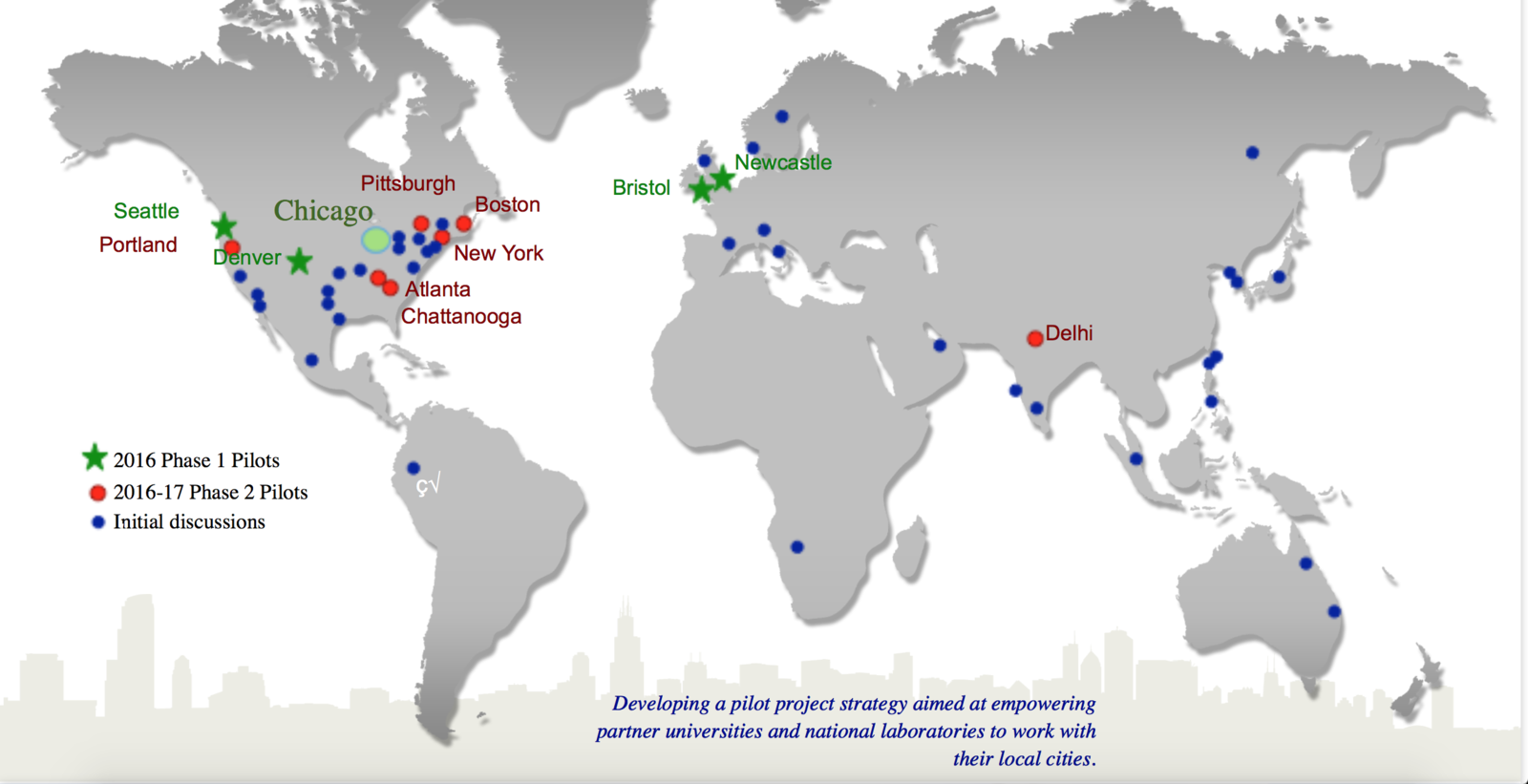open Data,
open government
ME
- Engineer at Urban Center for Computation and Data
- University of Chicago & Argonne National Lab
- @willengler, willengler@uchicago.edu
- My favorite podcast is Song Exploder
What I want you to get out of this
- Have some idea of what "civic tech" is
- Understand the role of open source tools in making data-driven government replicable and transparent
- Know where to turn next if you want to learn more or contribute to civic tech
What I Will cover
- A brief overview of civic tech
- How to learn more
- How to get involved
- A local case study
- The Array of Things: data collection and urban policy in Chicago
- A federal case study
- The Evidence Based Policymaking Commission: applying open source tools for federal policy analysis
Civic tech
A Brief, biased introduction
Civic tech is...
technology that enables engagement or participation of the public for stronger development, enhancing citizen communications, improving government infrastructure, and generally improving the public good. [1]

A FeW Examples
- Tools for Democracy: BallotReady
- Citizen Engagement: Smart Chicago Collaborative
- Responsive Government: Chicago 311
My Focus: data Access



Chicago Data Portal (2010)
Replicability
Opening up data is a fantastic start. But opening up analysis and application code allows for really cool stuff:
Chicago's open source health code violation prediction

learn more
- Chi Hack Night, Chicago's civic tech meetup
- A profile of social service delivery: CalFresh
- A critique of civic tech communities in Chicago
- The former Philadelphia CDO's playbook for working with civic hackers
Array of THings
open Sensing

AoT will essentially serve as a “fitness tracker” for the city, measuring factors that impact livability in Chicago such as climate, air quality and noise. - AoT website

We'll deploy 500 nodes in Chicago. Here is where the first batch is going (link)
Governance and privacy

Plenario's Role in Array of Things
- Take on distribution traffic
- Make AoT data discoverable
- Enable real time applications

Replication

Challenges
- Manufacturing is hard
- Computer vision is hard
Learn more
- Array of Things Website
- Array of Things code
- Plenario data pipeline code
COMMISSION on Evidence-Based Policymaking
Python to the people
THe Challenge
- Because of privacy concerns and inertia, federal administrative data tends to be siloed
- Finding out about datasets that would be helpful for your research but you don't have approval to access is hard, and likely requires personal connections
- You can't post your analysis of sensitive data on GitHub, so analyst effort is duplicated
THe Bill
A commission of 15 experts is charged with examining
what data-sharing infrastructure should be used to facilitate data merging and access for research purposes... how to protect information and ensure individual privacy and confidentiality... how data and results of research can be used to inform program administrators and policymakers to improve program design
(nice overview article here)
"Amazon for sensitive federal data"


Creating open source advocates
- Course website
- 180 policy analysts in this year's trial courses
- Course built on Jupyter notebooks


Compliance!
- FedRAMP (similar to HIPAA)
- A big step forward for federal software procurement
Replication
What you can do

contribute to oss
- The government has no money
- Much easier to build open, replicable layers on top of an open substrate
“I think the crazy thing is,” he says, “at a place like Twitter, they were all working for Trump this whole year even though they thought they were working for Sanders.”
The toolmaker's dilemma
say hi to chi hack night
- If you want to act directly and don't know how, Chi Hack Night is an incredible resource
work for the government
- United States Digital Service
- City, county, state level positions

thanks!
Open Data, Open Government
By Will Engler
Open Data, Open Government
PyData Chicago: 2/6/17
- 1,384


